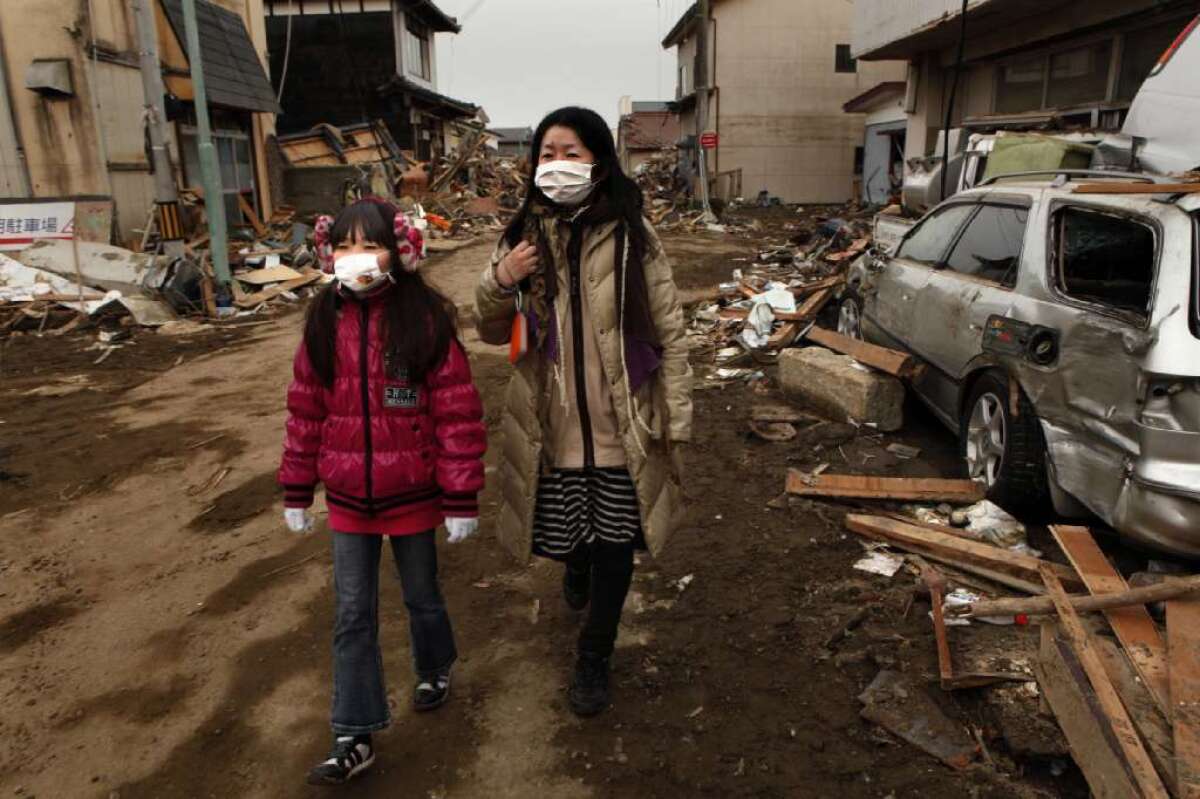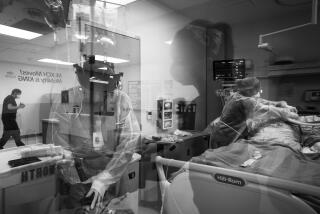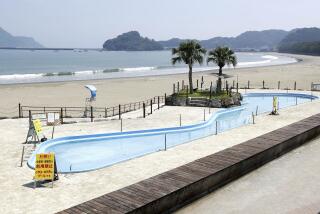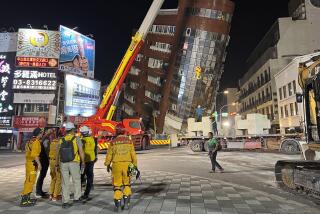Spike in heart attacks followed massive Japanese earthquake, tsunami

- Share via
The massive earthquake that struck Japan on March 11, 2011, and the tsunami that followed caused nearly 16,000 confirmed deaths, and more than 2,600 people are still missing and presumed dead, according to the National Police Agency. A new report in the New England Journal of Medicine adds to the casualty toll by confirming an increase in heart attacks in the weeks following the magnitude 9.0 quake.
Researchers from Osaka University, Tokyo Women’s Medical University and Kyoto University Health Service gathered data on heart attacks in Fukushima, Iwate and Miyagi, the three prefectures most affected by the quake and tsunami that struck off the coast of Sendai. They focused on patients who suffered cardiac arrest outside of a hospital and then were brought to a medical facility for treatment. The team zeroed in on the four weeks before and the eight weeks after March 11 in each of the years from 2005 to 2011.
The weekly totals for all three prefectures were fairly consistent in the years before 2011, ranging between 50 and 100 heart attacks per week. But in 2011, there was a spike in the week beginning March 11, with the total rising to nearly 150. That represented a 70% increase over the average from prior years, according to the report.
The risk of out-of-hospital cardiac arrest persisted for another four weeks, though the magnitude of the risk fell as time passed. In the second week after the quake, the number of heart attacks was 48% higher than in previous years; in week three, it was 47% higher; in week four, it was 26% higher; and in week five it was 25% higher (that week included a magnitude 7.2 aftershock). After that, the differences between 2005-10 and 2011 were not large enough to be statistically significant.
The researchers parsed the data a bit more and found that the risk was concentrated among certain groups. For instance, women between the ages of 18 and 74 were significantly more likely to have a heart attack in the two weeks after the quake, as were men who were 75 or older. The risk also rose for elderly men after the 7.2 aftershock on April 7 and the 7.0 aftershock on April 11. Women who were at least 75 years old were more vulnerable in the first, third and fourth weeks after the quake.
However, men between the ages of 18 and 74 did not suffer more heart attacks in 2011 than in prior years, the data showed.
If you’re interested in the latest medical news, you like the things I write about. Follow me on Twitter and “like” Los Angeles Times Science & Health on Facebook.
ALSO:
Eat hard, play hard: Thanksgiving dinner’s ‘sweat equivalents’
H1N1 influenza virus killed 10 times more than estimated in 2009
Sodium-packed medications raise stroke and death risks







